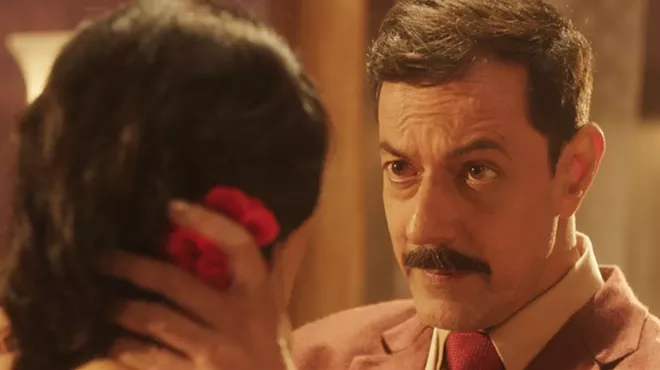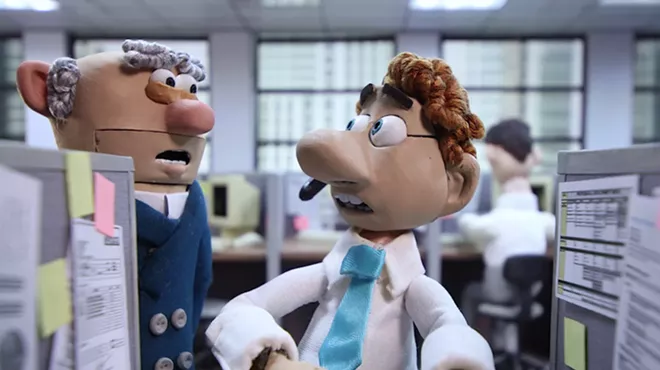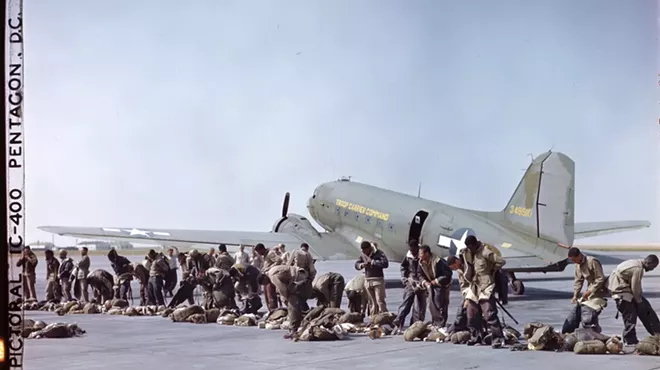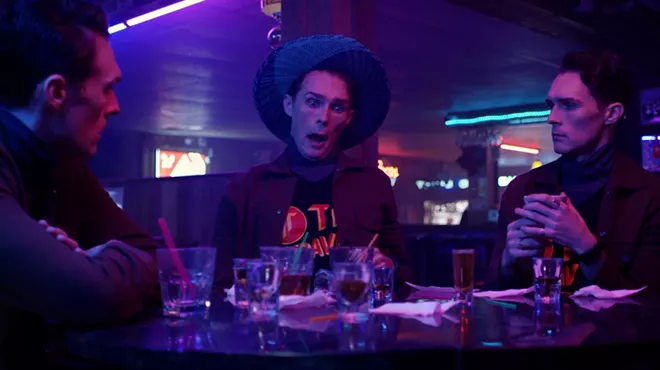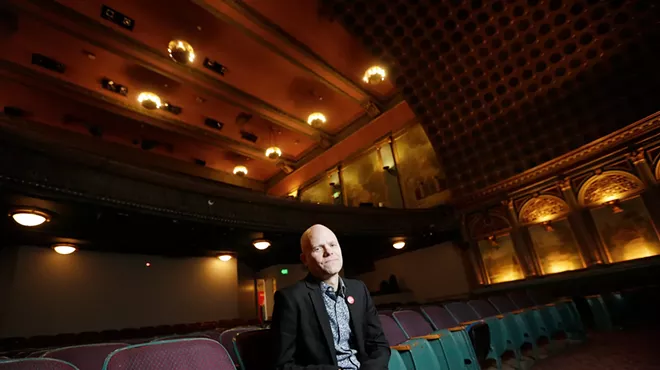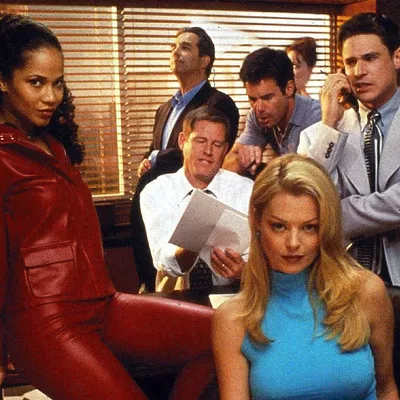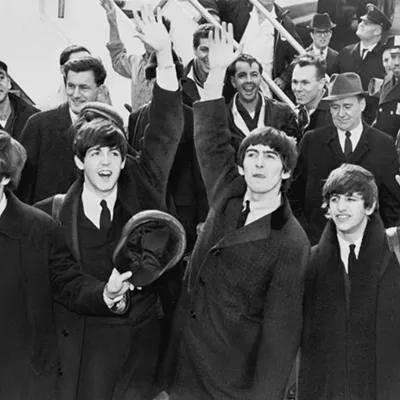It's often said that limitations can breed creativity, but during COVID times limitations were a necessity.
So when Lorna St. John, the producer and co-owner of Spokane's Hamilton Studio, wanted to make a film during the pandemic, she kept things in the family. She prompted her son Trevor St. John (the Spokane native best known for his decade-long run acting on the soap opera One Life to Live) and his cousins Graham Sharman and Brett Clothier-Sharman to write a film that could be shot almost entirely at Hamilton Studio.
"I gave Trevor and his two cousins a challenge to write something that we could do safely in times of COVID," says Lorna. "And in a controlled atmosphere, which we felt our studio would be. And they came up with their idea, which we thought was brilliant."
The result is A Good Enough Day, a very quiet dramatic character study of Tyler (played by Trevor), a man spending a single day trying to sort through his affairs and tie up loose ends with relationships that have been severely frayed. To put it mildly, the film is deliberate with its pacing. It's a slow, subtle burn as Tyler slowly peels back the layers of his discomfort through soft scenes of awkward phone calls and wincing emotional pain. As it slowly becomes evident why Tyler is going through the trouble of picking the scabs of these relationships which he clearly poisoned years ago, it shines an even harsher light on him.
"We knew that we wanted to not be too overt about anything," Trevor says. "We knew that subtlety was what we were going for. When you write a script that you know you're going to shoot, you write a script to please yourself. And, you know, they don't really make movies for me anymore. [laughs] So many movies are just obvious and don't respect the audience. And our first rule was: Let's assume our audience are intelligent people who don't need to be led by the nose."
The self-imposed limitations, namely that everything had to be shot in the studio or within walking distance, kept the cost of production down. Without having the complications of locations, a big cast, a large crew, wardrobe, etc., the Hamilton team was able to shoot the entire film in only eight days on a thrifty budget. But the restrictions also helped feed into narrative themes.
"There was also the real fact of wishing to illustrate his isolation, both by COVID, which is kind of a background character in the film, and the isolation that this character has done to himself," Lorna says. "[It needed] to have sort of an almost emptiness going on. He's really stranded himself."
A Good Enough Day, available at spokanefilmfestival.org, is the antithesis of big blockbuster filmmaking. But if you're willing to be patient with it, it has a chance to hit you in the emotional core.
"I had one friend see that film and said, 'I think I'm going to call some people' afterward. And I thought that was a pretty interesting response," Trevor says. "To me, [it's] a cautionary tale about allowing grief to take over to transform your life. It [can] become something you can't live with because you're no longer living, you've been completely transformed by it. It's shut you down. And that's not a way to live. And at the same time, it's not a message of 'Hey, get over it.' Yes, you're grieving horribly, and it was life-altering and just horrible. But what about the rest of your life? What about now? What about the present moment?" ♦
Streaming online at spokanefilmfestival.org


